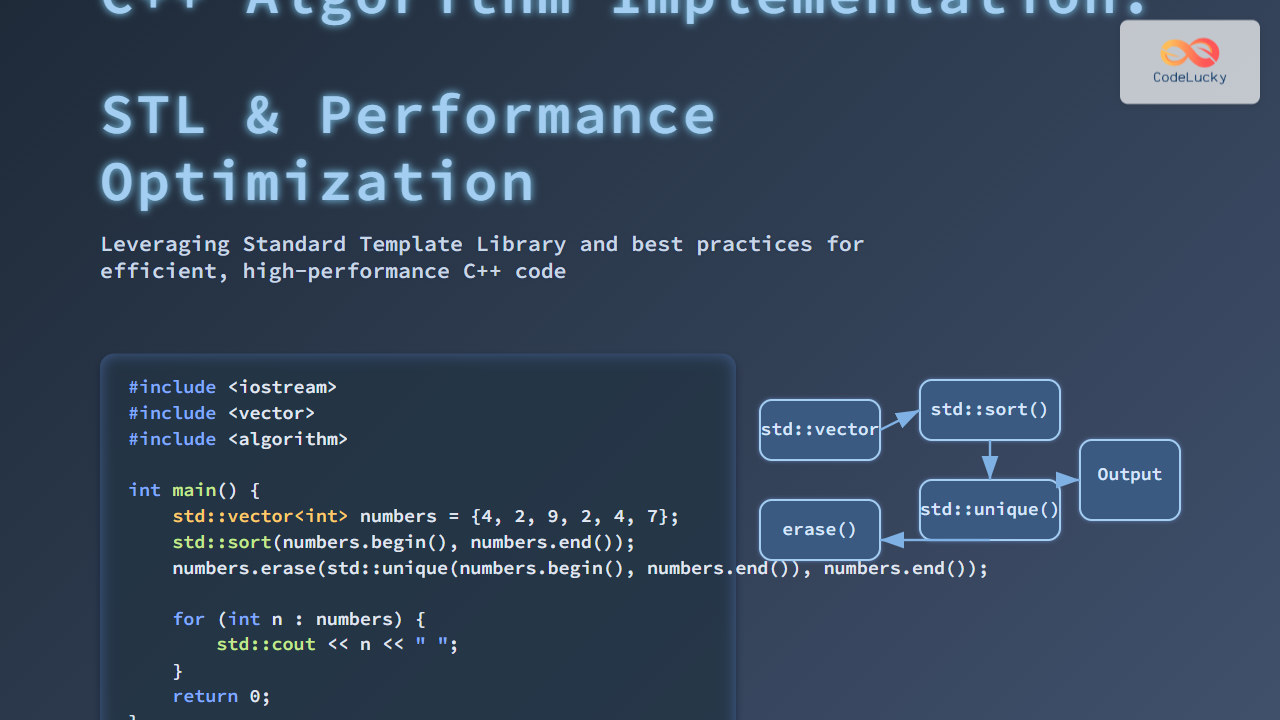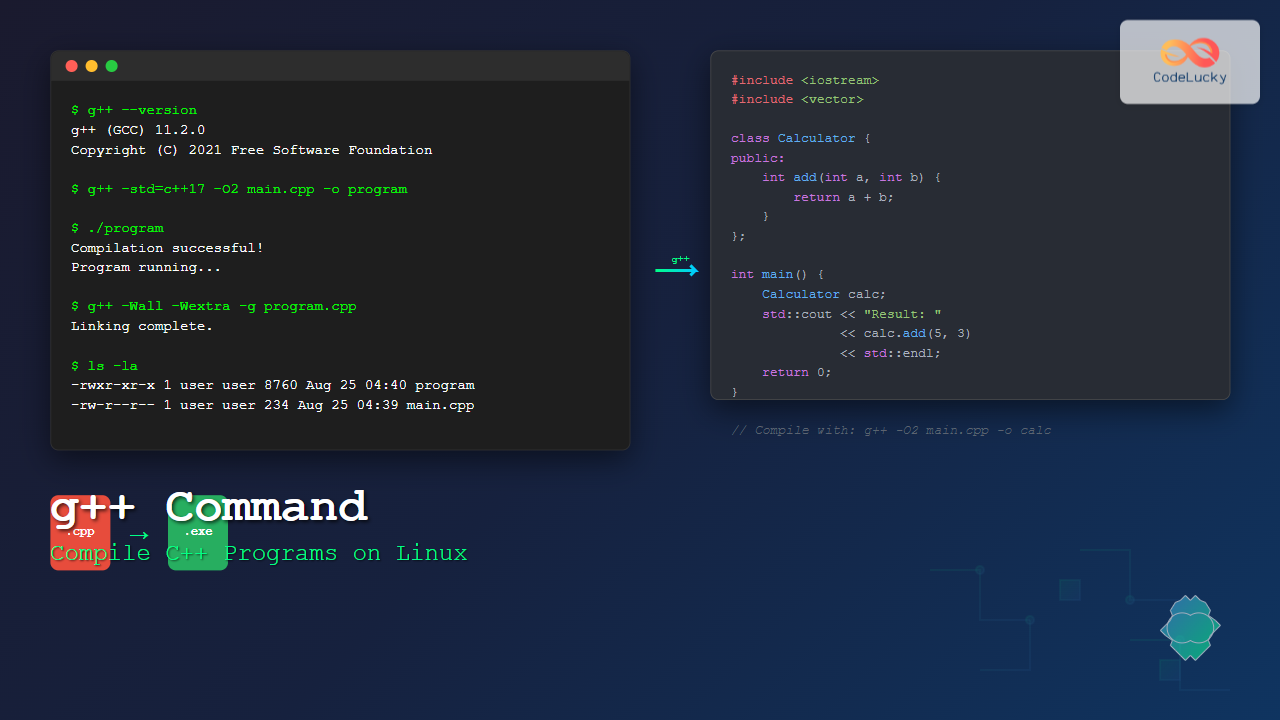In the world of C++ programming, ensuring code correctness is paramount. While runtime assertions have long been a staple for developers, C++11 introduced a powerful feature that takes assertion to the next level: static_assert. This compile-time assertion mechanism allows developers to catch errors early, improve code quality, and enhance overall program reliability. In this comprehensive guide, we'll dive deep into the world of static_assert, exploring its syntax, use cases, and best practices.
Understanding Static Assert
static_assert is a compile-time assertion that allows you to check conditions during compilation. If the condition evaluates to false, the compilation fails with a specified error message. This powerful feature enables developers to catch errors early in the development process, long before the code is executed.
Syntax
The basic syntax of static_assert is as follows:
static_assert(constant-expression, string-literal);
constant-expression: A compile-time constant expression that can be evaluated at compile-time.string-literal: An optional error message that is displayed if the assertion fails.
🔍 Note: In C++17 and later, the string literal became optional.
Advantages of Static Assert
- 🚀 Early Error Detection: Catches errors at compile-time, preventing runtime issues.
- 💡 Self-Documenting Code: Serves as inline documentation for important assumptions.
- 🛠️ Improved Code Quality: Enforces constraints and invariants at the type level.
- 🏎️ No Runtime Overhead: Assertions are checked during compilation, not at runtime.
Practical Examples
Let's explore some practical examples to demonstrate the power and versatility of static_assert.
Example 1: Ensuring Proper Data Types
Suppose we have a function that requires a specific size for an integer type:
template <typename T>
void processData(T value) {
static_assert(sizeof(T) == 4, "processData requires a 4-byte integer type");
// Function implementation
}
int main() {
processData(42); // OK
processData(42L); // Compilation error on some systems
processData(42LL); // Compilation error
return 0;
}
In this example, static_assert ensures that the function processData is only called with 4-byte integer types. This prevents potential issues that could arise from using larger or smaller integer types.
Example 2: Validating Template Parameters
static_assert is particularly useful when working with templates:
template <typename T, size_t Size>
class FixedBuffer {
static_assert(Size > 0, "Buffer size must be greater than zero");
static_assert(std::is_trivially_copyable<T>::value, "Type must be trivially copyable");
T data[Size];
public:
// Class implementation
};
int main() {
FixedBuffer<int, 10> buffer1; // OK
FixedBuffer<int, 0> buffer2; // Compilation error: Buffer size must be greater than zero
FixedBuffer<std::string, 5> buffer3; // Compilation error: Type must be trivially copyable
return 0;
}
Here, we use static_assert to enforce constraints on the template parameters. The first assertion ensures that the buffer size is always greater than zero, while the second checks if the type is trivially copyable.
Example 3: Checking Enum Values
static_assert can be used to validate enum values at compile-time:
enum class Color { Red, Green, Blue, Yellow };
constexpr int ColorCount = 4;
static_assert(static_cast<int>(Color::Yellow) == ColorCount - 1,
"Unexpected number of colors in enum");
int main() {
// If we add a new color without updating ColorCount, we'll get a compile-time error
return 0;
}
This example ensures that the Color enum has the expected number of elements. If a new color is added without updating ColorCount, the compilation will fail.
Example 4: Validating Bit Manipulations
When working with bit manipulations, static_assert can help prevent subtle errors:
template <typename T>
T setBit(T value, int bitPosition) {
static_assert(std::is_integral<T>::value, "setBit requires an integral type");
static_assert(sizeof(T) * 8 > bitPosition, "Bit position out of range");
return value | (T(1) << bitPosition);
}
int main() {
auto result1 = setBit(0x0000, 3); // OK
auto result2 = setBit(0x0000, 31); // OK for 32-bit integers
auto result3 = setBit(0x0000, 32); // Compilation error on 32-bit systems
auto result4 = setBit(3.14, 2); // Compilation error: not an integral type
return 0;
}
In this example, static_assert ensures that the setBit function is only used with integral types and that the bit position is within the range of the type's size.
Example 5: Compile-Time Calculations
static_assert can be used to verify compile-time calculations:
constexpr int fibonacci(int n) {
return (n <= 1) ? n : fibonacci(n-1) + fibonacci(n-2);
}
static_assert(fibonacci(10) == 55, "Incorrect Fibonacci calculation");
int main() {
constexpr int fib10 = fibonacci(10);
std::cout << "The 10th Fibonacci number is: " << fib10 << std::endl;
return 0;
}
This example uses static_assert to verify that our compile-time Fibonacci calculation is correct.
Best Practices for Using Static Assert
-
📌 Use Descriptive Error Messages: Provide clear, informative error messages to help developers understand why the assertion failed.
-
🎯 Assert Early and Often: Use
static_assertto validate assumptions as early as possible in your code. -
🧩 Combine with Type Traits: Leverage C++ type traits library to create more powerful assertions.
-
🔄 Regularly Review and Update: As your codebase evolves, review and update your static assertions to ensure they remain relevant.
-
📚 Document the Purpose: Add comments explaining why each
static_assertis necessary, especially for complex conditions.
Limitations and Considerations
While static_assert is a powerful tool, it's important to be aware of its limitations:
- 🔒 Compile-Time Only:
static_assertcan only check conditions that can be evaluated at compile-time. - 🔍 No Dynamic Checks: It cannot replace runtime checks for conditions that depend on user input or runtime state.
- 💻 Compiler Support: Ensure your compiler supports
static_assert(C++11 and later).
Conclusion
static_assert is a valuable addition to the C++ developer's toolkit, offering a way to catch errors early, improve code quality, and document important assumptions. By leveraging compile-time assertions, developers can create more robust, self-documenting code that is less prone to subtle runtime errors.
As you continue to explore C++, remember that static_assert is just one of many powerful features that can help you write better, more reliable code. Embrace it, use it wisely, and watch your code quality soar to new heights!
Happy coding, and may your assertions always hold true! 🚀👨💻👩💻
















